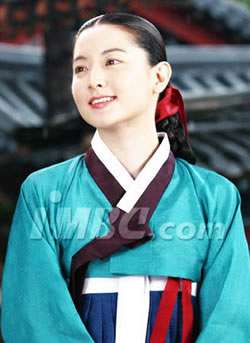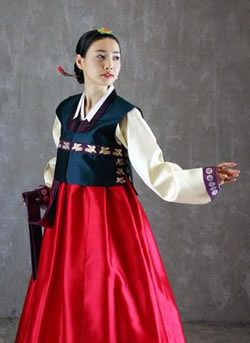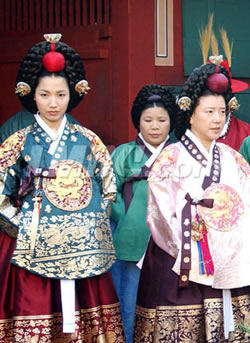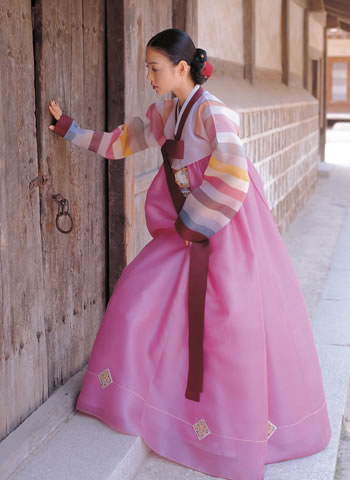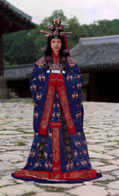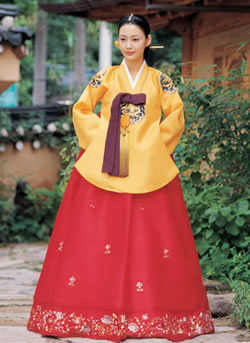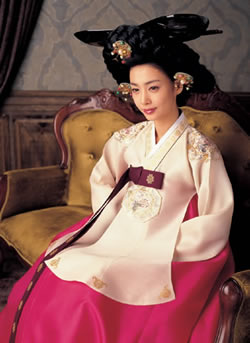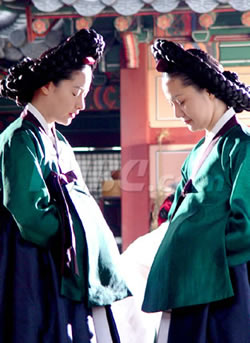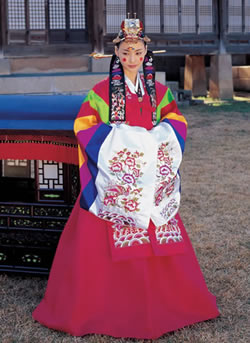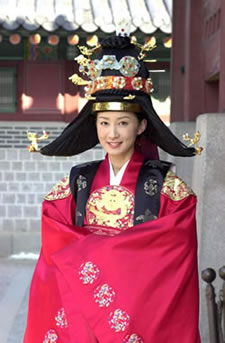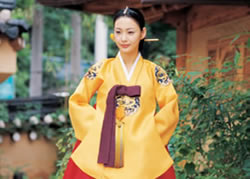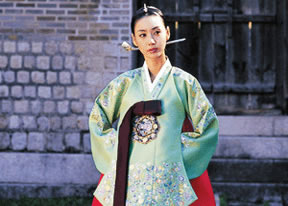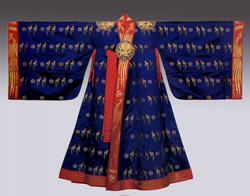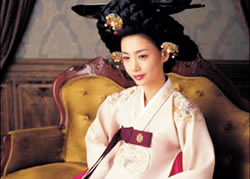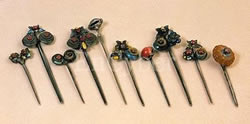 | Reflections
on Korea A
Guide to Korean Cultural Heritage
Kimchi
and Bulgogi, Jeryeak,
Masks and Mask
Dramas, Taekwondo, Korean
Ginseng, Bulguksa
Temple and Seokguram Grotto, Mt.
Seoraksan, Korean
Printing Heritage, Korean
Traditional Musical Instruments, Korean
Pottery, Dancheong,
Korean
Patterns, Jangsingu,
Korean
Paper Crafts, Bojagi,
Shamanism
in Korea, Korean
Rites of Passage, Ssireum,
Sesi
Customs, Hanbok,
Korean Gardens,
Korean
Folk Painting, Jasu |  |
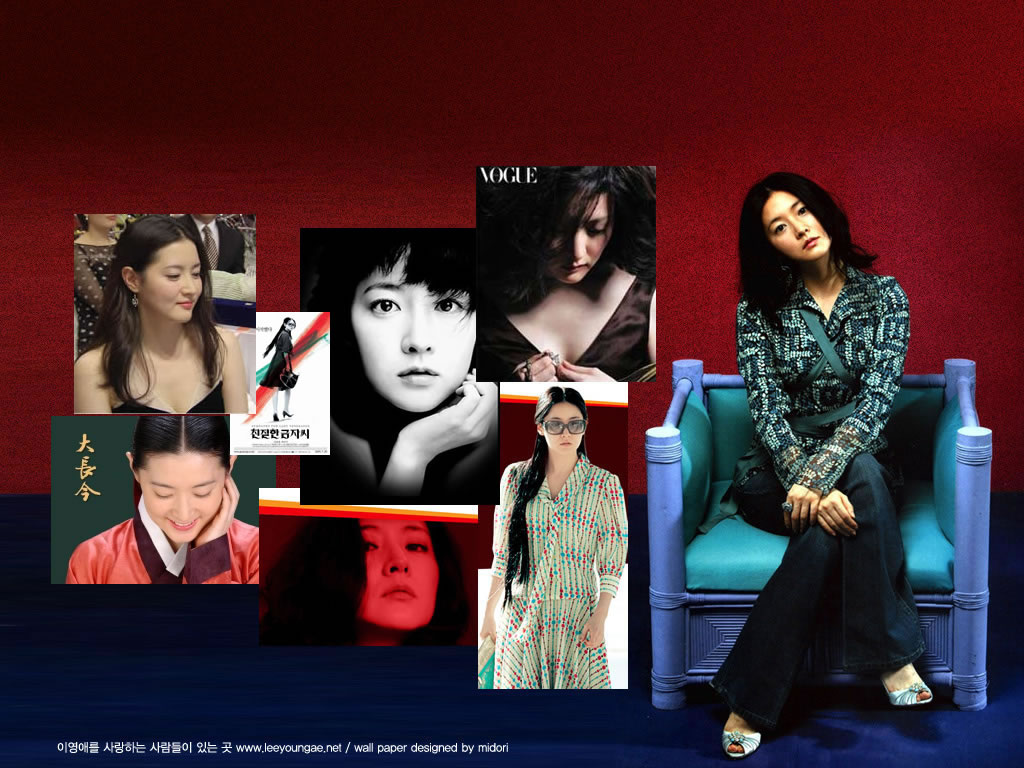
|
| |  | Another
Public Enemy: Another Public Enemy is
the kind of movie that should resonate immediately with American audiences. Although
set in South Korea and supposedly dealing with areas of modern Korean culture,
the film shows and deals with situations that should be recognizable to most Americans.
Kang
Chul-joong is the archetypal self-made man, a prosecutor whose mind and skills
are, in some odd way, born into. Like Prosecutor Kang was "born" for
one mission and one mission only: to serve the public good.
On the flipside,
Han Sang-woo, represents the doppelganger that can be created by the same society:
born rich and spoiled he is not interested in playing by the rules of civilized
society. It is classic and it works.
In Another Public Enemy, the director
Kang Woo-suk tries for social commentary. He focuses on the corruption that exists
in politics and business in Korean culture - with caricatures and no subtlety.
Yes, one could read Another Public Enemy as too simplistic. It will resonate with
those viewers who are stuck in the duality of good versus evil. Why not? For those
of us missing heroes and mired in convoluted psychological dramas Another Public
Enemy is a solid sequel that expands on its basic ideas in new and exciting ways.
It might not be the next Infernal Affair but it was two hours of good fun. |  | R-Point:
It's the middle of the Vietnam War and a Korean base gets a desperate radio transmission
seeking assistance. The message was fairly clear: "we're dying out here!"
It was not that the transmission was unusual. What was unusual was that the platoon
of soldiers calling in had gone missing for months. As the plot progresses they
send out a rescue team to a spot called R-Point. Their mission is clear; they
have five days to retrieve either the soldiers, or their dog tags.
The movie
had, as most movies do, its high points and its low points. The film was more
of a psychological horror film akin to something like a Sixth Sense rather than
a Rambo, where all the characters fights their own demons as the rest of the platoon
is not bothered by the same experience. Inevitably - someone had to get shot by
mistaken identity.
Director Kong Su-chang's attempt to scare us are less than
successful. Dead soldier interact with the live soldiers but they don't know it
- and neither do we. It is in retrospect thhat we realize what is really going
on - it somehow misses the mark.
No wonder it was Korea's highest grossing
horror film in 2004 - the look was really great and there were some awesome shots
- and arguably it struck a cultural cord. BBut was it really very effective to
see the ghost's perspective? Kong's technique of using a different color tone
to exemplify difference was crucial in giving the viewer some semblance of information
on what was going on.
In the end though, 'R-Point' is a lugubrious and unimpressive
thriller. It was successful on many levels but the ending left one flat. |  | Samaritan
Girl: In Samaritan Girl Kim Ki-duk once again asks us to ponder deeply into
complicated space of the human psyche. Two young girls set out on a mission to
save money for a holiday. When one of the adventures goes horribly wrong, the
young girl turned prostitute commits suicide, forcing her best friend and partner
in crime (who is also her manager, and arguably her lesbian lover) to seek a sense
of atonement. Jae-yeong's (Seo Min-jeong) is not bothered by and even attempts
to connect with her clients on a personal and human level. Her best friend and
manager Yeo-Jin (Kwak Ji-min) at first resists but later sets out to "do
the right thing" by servicing those very same clients and then returning
the money they paid to be serviced by Jae-yeong. The reason for this is not fully
explained. Guilty perhaps and not wanting to benefit from the "ill-gotten"
wealth, one gets the sense that the burning of the money would have done the trick.
The story is elevated several levels when Yeo-Jin's father - a police officer
(Lee Eol) witnesses an encounter and is forced to deal with the issue - not just
as a professional but as a father. The turbulent emotions and reactions set the
stage for arguably the most complex issues set out in the movie - for that alone,
the movie is worth watching. After Spring, Summer, Fall, Winter...and Spring,
Kim Ki-duk sticks with the more "forgiving" mode, oddly juxtaposing
the short moment of happiness as Jae-yeong gives of herself to the men around
her and martyrs herself in order to free Yeo-Jin, who in turn has to whore herself
to restore serenity to the world vis-à-vis the heavy handed retribution
leveled at the johns by Yeo-Jins father. One is almost reminded of the sexual
encounter in Spring, Summer, Fall, Winter…and Spring where a young monk and
the young woman are both "liberated" through their "encounter"
only to be subjected to suffering caused by a sense of attachment that leave both,
more troubled. Honestly though, one is left troubled by the target of the existential
consideration - children. Arguably, by subjecting the man to his daughter's whoring,
Kim Ki-duk does in an odd sort of way bring the two closer - the father does not
REALLY know his daughter. It is really difficult to figure out what Kim Ki-duk
is trying to do here. Certainly the movie is on many levels thought provoking
but some viewers like myself are left with an odd feeling that there was no need
to increase the intimacy level between the two young girls through bathing scenes
that could have been left out and not really harmed the integrity of the movie.
For all the paternal considerations - kudos to Kim Ki-duk for all the other scenes
- well think again. Was it really necessaryy? |  |
Sympathy
for Mr. Vengeance: I'm a sucker for Lee Young-ae - so if asked which of the
"Vengeance" trilogy I liked best... I would say it is all about "Atonement."
If you watched "Lady Vengeance" - you will know what I mean. However,
Sympathy for Mr. Vengeance marches to the beat of its own drum - yes, it is not
Oldboy (and neither is Sympathy for Lady Vengeance) but that is the genius of
Park Chan-wook - who has just unseated Wong Kar-wai in my cinematic Mt. Olympus.
Sympathy
for Mr. Vengeance Story is all about the carnage - it was really difficult to
figure out who "Mr. Vengeance" was. You loved them all and you hated
them all. Ryu, a deaf-mute, works hard at a factory to save some money for an
organ transplant for his sister. Ryu's sister is in dire straights and needs that
kidney, now! Understandably, Ryu is beginning to feel that same sense of desperation
- and desperation is the key concept. He iss willing to do anything (and at this
point it really is "anything" to save his sister). The desperation hits
a high note (or low note) when Ryu goes illegal get the kidney. Plans backfire
and he is left not only without a kidney but short the money that would have paid
for the legitimate operation. Concurrently, Dong-Jin, a businessman who has worked
tirelessly to get were he is, attempts to live an ordinary life with his daughter.
As ironies would have it, the daughter gets kidnapped for - you got it - operation
money. Regrettably for both parties, the kidnapping becomes - let us just say
- the seed for the second half - the Mr. Veengeance carnage - where we really see
Park's talent blossom.
Don't you ever find yourself in days when nothing seems
to go right? Well think about that all the way around - yes, with deadly consequences.
Something, again about the editing made one feel the action was both natural and
believable. Not that it made me say want to go out and take a bat to someone but
that dangerously everyone seemed to have motive... a sort of Brother Karamazov
meets Raskolnikov - but best to leave all that for another space and time.
I
lament that Sympathy for Mr. Vengeance is really not a movie for everyone. Here
is another admission - I slept just about every time I started the movie - I am
not sure if it was the time, my physical condition, or simply that the setup dragged
a bit... The melancholy tone and graphic violence is a bit of an acquired taste.
Mind you, this is not the same sort of "Asian Extreme" with all the
Japanese horror movies out there. But give it a chance - and if you feel asleep
in the theatre, make sure you buy the DVD it will be worth the wait. Then get
set for Sympathy for Lady Vengeance - no expectations, no hurts. | 




 |
|  | Natural
City: I have to admit something... I really liked it. It gave that soft sense
that Logan's Run did when I first caught it on the big screen. OK, I should be
getting a more Casshern, Bladerunner, sort of feeling - there is that too. Research
tells me that Natural City was a a box-office sensation - but only in Korea. Not
sure why... neither did Casshern - but that is more a reflection of us in the
US than the filmmaking in Japan and in Korea. The movie plays at or around AD
2080 where genetic and mechanical engineering has reached an apex - man is playing
god in a very systematic way. In this space and time it is simple to alter human
DNA, manufacture clones and fuse humans with "neuro-chips." An explanation
is in order...a neuro-chipped human clone known as a `Combiner' has become basic
part of everyday life. There are effectively two stories: a romance and one more
akin to the Matrix and all its epistemological musings - yes, it is actually deep.
Nonetheless, it does tend to fall into the tried and tested Tae Guk Gi drawn out
battle scenes and the usual Korean flair for the over dramatic. Byung-chun Min
he does a pretty good job - not up to Oldboy but it is good fun. Natural City
comes at the whole mecha combined with human phenom from a different angle. Natural
City Science gives personalities and a soul to machines. Moreover, it turns the
table on conventionality - the story behind Natural City is more weighty a prophecy
- as soon as humans opt to become more likee equipment and even choose to "love"
machines it can become somewhat disconcerting. It is no Matrix but it is 2 hours
well spent. |  | Tae
Guk Gi - The Brotherhood of War: Korean
filmmaker Kang Je-Kyu directs a Korean War epic that is action-packed, shows the
brutal nature of war and an intimate portrait of family. It's powerfully moving
and thoroughly involving, although rather over-constructed.
As a short synopsis,
Jin-Tae (Dong-Kun Jang) shines shoes as his part of the family effort to send
younger brother Jin-Seok (Bin Won,) to school. However, life gets in the way as
the Korean War begins in 1950, both brothers are drafted. In an unwritten agreement
with his superior, Jin-Tae engaging in daring heroism to earn top medals so he
can have his brother sent home. Ironically, after witnessing the shooting of his
fiancée as a communist spy Jin-Seok converts his patriotism to a form of
obsession for revenge.
Kang's film is strongly nationalistic. The flag waving
and need to re-unify is apparent. The scenes are replete with proud flag waving
with each victory. The war is played out like a battle for Korea's very soul -
caught in a battle larger than themselves with the dual forces of America on the
one hand and China on the other.
The combat scenes are intense. It seemed though
that the story was just a tad heavy on the explosion and gore and soft on sentiment.
It seemed like Kang was trying an "in-your-face" strategy of throwing
us right, actually placing us right in the middle of the war. In a way it was
successful because it was unremitting and horrifying.
As mentioned previously,
in conjunction with the gore is heartfelt story of two brothers' stories of survival
and love - not just for each other but for family as well. I have to admit to
falling for Kang's sentimental allusions to family loyalty and the waste of war.
It is a formula that does not disappoint. | | Joint
Security Area: The story begins with a
single shot. As it turns out, two North Korean soldiers are dead in what is called
the Joint Security Area. A "Neutral Nations Officer" is asked to find
out why and to figure out a way to do damage control - what she finds is that
there is more than meets the eye. The scope of the movie is huge. It tackles a
very difficult issue - especially since those who sow the seed of hate are all
too eager to maintain the status quo. When all the layers are shed - it all comes
down to our humanity - and that is why this movie will stand the test of time.
The first time we get to tackle this issue of the breaks between the Koreas (at
least in any serious fashion was SHIRI (also available on Amazon.com). What begins
as a political thriller is actually about the relationships built between friends
from different sides of the line and how the relationship quickly disintegrated
by blind adherence to ideologies, we quickly find out, never really had any efficacy
to begin with. Four soldiers divided by socially constructed borders (as all borders
are), share and enjoy each others company. One fatal night, on the North Korean
side, something very interesting happens (you will need to watch the movie to
figure out what that is). The movie jumps between the present to the past and
vice versa. The focal point of the story switching from the soldiers involved
their investigator. The movie reminds one of a very elaborate JAG episode. Park
Chan-wook weaves a very interesting tale as he moves from one character to another.
Part of the fascination of this movie is the tension of the nations affected,
the reactions of the various people involved, the possible alternative outcomes
if people simply learned to get along, examining how in such a cinder box - how
the soldiers overcome artificial hostilities. The movie is tragic, on the one
hand but inspiring on the other hand as we see the break down of political differences
in an effort to develop their friendship. In a sense the movie serves as a metaphor
of possibility - as individuals break down the barriers they represent their people.
Hope and reconciliation keep the audience interested. Few films combine great
cinematography, good acting, a wonderful storyline, wicked editing, eye candy,
and a sense of hope that if we understand our past we need not be fated to repeat
it. | | Oldboy:
One of the best edited movies I have seen yet. The story flows and hits all
the taboos without skipping a beat. Oldboy is a story about gnawing revenge and
disaster-prone love, and tragedy. But it is deep, dark and weird. The story is
not for the timid and at times pushed the envelope just a wee bit too much - even
for me. However, it marks its director Park as arguably one of the more innovative
coming out of Korea. Oh Dae-su (Min-sik Choi), is a model of bourgeois perfection:
a young married man, complete young daughter and office job. One evening he is
mysteriously kidnapped and incarcerated in a hotel with only a television to keep
him sane. In this time he is drugged so his captors (who are note revealed) can
clean up the room and check on him. Approximately 15 years go by before Oh Dae-su
is finally released. Like the Count of Monte Cristo he starts planning his revenge.
Before he can even move his enigmatic captor gets in touch with him, prodding
Oh Dae-su to discover his identity and the motivation behind the incarceration.
Oldboy begins with a spiraling downward through the 15 years that Oh Dae-su is
cooped up in the hotel room. We find him undergoing rigorous physical training.
We catch Oh Dae-su frantically trying to retain a grip on his sanity. In those
15 years Oh Dae-su learns that someone has killed his wife. He ponders and plots
waiting for the day he will be released. This Kafkaesque world of assumed guilt
builds up as we see strange yet familiar world.
Park runs a compelling first
half where Oh Dae-su starts his investigation into the location of his "prison"
and to find out who was behind this - much less to figure out the motivation for
the same. His methods of investigation are neatly contrasted, using his feel for
the dumplings fed to him. Understandably, Oh Dae-su trusts no one. He slowly (and
dangerously) attaches himself emotionally and physically to Mi-Do. The first hour
concludes with a barrage of violent scenes that are characteristic of a new and
chic style of cinema called "Asian Extreme." One wonders about the why,
much less than pondering the how (cinematography). It's in the latter part of
Oldboy, Park moves into more distressing territory. Oh Dae-su's tormentor shows
himself to be Woo-jin Lee (Ji-tae Yu). Woo-jin Lee is a former schoolmate who
blames Oh Dae-su for a series of past events. The imprisonment, we soon discover,
was part of Woo-jin Lee's elaborate plants to extract revenge. It is a twisted
tale, no doubt. However, Park brings amazing range and sensitivity to Oldboy.
The thing is, we don't to the end, predictably, until we witness yet more violence.No
spoilers allowed, so I won't go into it here... you need to see the movie yourself
to figure it all out. Oldboy is not the compelling human tale usually taunted
by other reviewers. That it is well written is beyond a doubt. Les Miserables
it is not. It is a powerful story and no doubt will be the standard of its genre
for a long time. | 
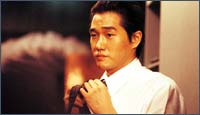


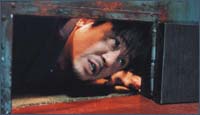
 |
| | A
Tale of Two Sisters: As with all good movies, the surface betrays what is
underneath. Kim Jee-Woon's "A Tale of Two Sisters," is an eerie mystery
that is lusciously more about psychological terror and heightened looming trepidation
than it is about cheap long hair or gore.
Based on a Korean legend, the movie
tells the story of two sisters who come back home after time spent in a "hospital"
for unrevealed reasons. The elder sister, Su-Mi (Im Soo-Jung) is characterized
as always having her younger sister Su-Yeon (Moon Geun-Yeung) back. Su-Yeon, predictably
simply wants things to go smoothly. Conversely, Su-Mi harbors some acrimony towards
her father (Kim Kap-Soo). Moreover, Su-Mi along the same vein harbors a strong
resentment for Dad's new (and young) wife Eun-Joo (Yeom Jeong-Ah). No love lost
there and Eun-Joo is not the poster child for the loving maternal type. As a matter
of course, she turns out to be the wicked stepmother. Along the "no love
lost" scenario - Eun-Joo's ill conceived attempts to mask her utter contempt
for her new Su-Mi and Su-Yeon are failures.
If the family ill-will was not
enough, things start to take a turn for the worst when a ghost begins to trouble
both daughters as well as Eun-Joo. When Eun-Joo's precious birds mysteriously
come up dead, the suspicion, mistrust, and rage in the abode is bumped up yet
another notch. Eun-Joo vents her spleen on defenseless Su-Yeon by locking her
up in a closet. Su-Mi, as mentioned previously, having Su-Yeon's back predictably
seeks revenge.
As viewers we need to be asking ourselves: Is this a case of
genuine paranormal haunting? Not to dampen the suspense - no spoilers here: What
is going on with this family? One needs to watch the movie then to figure out:
How did all this even begin? Curious I was about: Why does not the father step
in and put a stop to all this madness and cat fighting? And just what the hell
is going on? To give Kim Jee-Woon's huge credit, he is able to pull back on the
easy answers so as to compel the viewers to stay until the end of the shocking
story.
To say anymore about "A Tale of Two Sisters" would not be
fair to viewers who have yet to see it. Even if you intuit what is really happening
the movie is still a compelling watch. If you remove the cheesy horror elements,
what vestiges remain is really a tragic family drama. The tragedy is, at least
on one level, why "A Tale of Two Sisters" is seen as a "cut above"
(no, no pun intended). Proof positive that Korean filmmakers are "coming
in from the cold" (no pun intended again) the film is nonetheless unquestionably
stylishly shot. "A Tale of Two Sisters" is the kind of movie that keeps
the viewer at the edge of their seat (or bed) proving that there is more "Asian
Extreme" than "One Missed Call," "Audition," and "The
Ring." | | Spring,
Summer, Fall, Winter... and Spring: This
lyrical Buddhist based story has a deceptive simplicity about it. As most great
movies do, they nuance their profound and unique knowledge about the human experience.
The movie, situated solely at a mountain lake, set the stage for a back to nature
mise-en-scene. The story revolves around an elderly monk and his young student,
as they move from one stage of the life cycle to the next. As the title suggests,
the movie begins with spring then moves to summer, from summer to fall, from fall
to winter, and then moves back again to spring; taking into account the full cycle
of the seasons of the calendar accentuated by certain events that transformed
both their lives. Kim Ki Duk's directs this film from its initial placid state,
as depicted by the still water of the distant lake, and deftly moves us to the
cavalcade of passion and emotion. The movie is marked by its deep sense of compassion
and the non judgmental nature of Buddhism. Marked by powerful performances, we
need to acknowledge Yeo-jin Ha. Almost anachronistic and seemingly self destructive
- her stellar performance of the disturbed yet likeable patient lent itself to
the non judgmental nature of the film - not to mention that she was trouble waiting
to happen in this all boys enclave. Moreover, filled with a plethora of humorous
moments in the mesmeric appearances of a white cat, the slow moving turtle and
a perplexed rooster, the film is sensual, raw, and earthy. The films real triumph
is how it takes us back through a lack of ornamentalism allowing us to follow
a sense of deep spiritual discipline. It took this viewer back to place in my
youth where I saw things as they are rather than how I would have wished them
to be. | |
Shiri: New to the genre of East Asian action
movies - I have to admit that I simply liked this movie. A little high on the
gore - but in the tradition So Close and Naked Weapon - nonetheless entertaining.
The
story is based on the juxtaposition and convergence of three main characters:
Ryu, Lee, and Hee. Ryu (Suk-Gyu Han) and Lee (Kang-Ho Song) are Seoul detective/secret
service types who are hot on the trail to find elusive assassin Hee (Yun-Jin Kim).
Hee was developed by and works for a North Korean terrorist organization known
as the Special 8th Force. The group's aim is to bring about the unification of
Korea by precipitating a war.
Special 8th force hijacked an army convoy carrying
the liquid volatile CTX. With the clock running out before the lethal chemical
is detonated, Ryu must find Hee and stop her by any means necessary. As a complication
and this should prove predictable, Ryu and Hee are romantically involved.
The
sub-plot of a love story between Ryu and Hee is not lost amidst the ruckus of
bullets and explosions. The writers make no bones about the identity of the female
assassin. If taken as simply an action film, it is fairly good. This movie is
replete with tales of counter espionage action, snipers, heavy gun fights, swat
teams, bomb threats, and car chases. The product is proof positive that the filmmakers
took the time and paid close attention to detail.
There was a hint of social
commentary with the introduction of the deception and suffering caused by the
separation and resulting into of the two Koreas. Perhaps the viewers might heed
the ramblings that perhaps it might be beneficial to consider the development
of a single Korea - for that and the action it was worth the price of admission
- in this case the price of a DVD. |
| 
| Chunhyang: As
a summary, Korean director Im Kwon Taek brings to the screen (in this case DVD)
a visually stunning fairy-tale about ill-fated lovers. Chunhyang has a very Romeo
and Julietesque theme to it but with a twist - two twits actually. The story is
framed on two basic premises: (1) That there is a class divide and never shall
the tenet be breached and (2) The issue of unjust laws. In a nutshell, Chunhyang
(Yi Hyo Jeong) is a daughter of the former courtesan Wolmae (Kim Sung Nyu) who
unwittingly spellbinds Mongryong (Cho Seung Woo) who is the son of the current
governor of Namwon province.
The colorful sets, and costumes are the basis
for a very Zhang Yimouesque visual feast. However, the movie stands on its writing
and editing - the constant return to the themes of a socially constructed class
divide and the endurance (no matter how naïve) of love is the DVD's defining
moment. As mentioned previously, Chunhyang is the descendant of a retired courtesan
and a former governor, which somewhat determines her fate. Completely enamored,
Mongryong pledges undying commitment to Chunhyang, etches on her gown, "Like
the sun and the moon, my love will never change." The couple secretly marries.
The love scenes of their first wedding night are both tender and discrete making
the play both sensual and innocent.
Unfortunately, Mongryong has not fully
dealt with the family/class issue pre-marriage and is called upon to follow his
father to Seoul - where his father has been promoted to a Cabinet member position
and will have to give up his governorship. In the interim, Byun (Lee Jung Hun)
arrives to replace Mongryong's father as the new Governor of the Namwon province.
Almost on queue - the story turns Greek tragic. Byun falls in love with the beautiful
Chunhyang and demands she give himself to him as a courtesan. Predictably she
resists gaining the ire and the full extent of the law, as it is treason to deny
the Governor. She invokes another law - which falls on deaf ears that it is unlawful
to sleep with another man's wife. Byun commands her to be whipped until she act
in accordance with the law. However, the worst-case scenario happens as after
rebuffs he deems she must be put to death.
In his three years absence young
Mongryong tops the government exam and is appointed the king to test out on the
management of the provinces. Masquerading as a poor vagrant, Mongryong sets his
sights on Namwon province and comes home to find oppressed town folk and his wife
beaten, incarcerated and in anticipation of the carrying out of her death sentence.
One would wonder that in the three years apart no one tried to contact Mongryong
but it would not bode well for the story as he needs to gain in prominence sans
the worry of a wife who was already deemed unfit for him.
Don't forget for
a moment that Mongryong is establishment and in carrying out his corrective action
still clings to the notion that it is illegal to deny the governor - ironies within
ironies. This is not a simple narrative and in it is embedded plots and subplots
that are worthy of a place as a national narrative. Besides who are we kidding,
Yi is hot in an almost innocent sort of way and her defiance of the Governor's
edict is stellar. I was left with the memory of vibrant colors that reminded me
of such epics as Hero and Ju Dou proving that East Asian have a real handle on
the element of color. Who can deny that the combination of tragedy/love/color/social
commentary is nothing short of a masterpiece? No one, I guess. |
|


